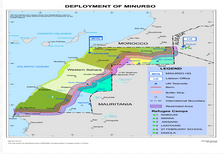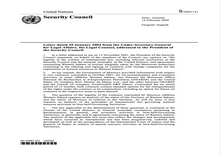SADR Petroleum and Mining Authority
Our Mission
To responsibly manage the State’s natural resources on behalf of the people of the Saharawi Arab Democratic Republic and for furture generations of Saharawi.
Strategic Objectives
- To maintain a legislative framework that supports efficient and transparent development of the State’s natural resources
- To regulate the petroleum and mining industries to ensure responsible and environmentally sound natural resource development
- To collect natural resource revenues arising from licence fees, royalties and taxes
- To collect and manage geological knowledge and information to provide geoscientific advice and data to government, industry and the community
- To promote the prospectivity and responsible development of the State’s natural resources nationally and internationally
Western Sahara
Political History
Western Sahara is classified by the UN as a non-self governing territory. The territory was a colony of Spain from 1884 to 1975 and was informally referred to as “Spanish Sahara”. The end of Spanish colonisation in 1975 was marked by the illegal partition of the territory between Morocco and Mauritania. This partition was in contravention to previous Spanish commitments to comply with defined UN decolonisation procedures, particularly with respect to the organisation of a referendum of self-determination.
The Saharawi Arab Democratic Republic was proclaimed by the Polisario as representatives of the indigenous people of the territory of Western Sahara on 27 February 1976, following the final withdrawal of the Spanish colonial government and military. The SADR is a full member of the African Union and it recognised by over 80 countries. Since 1976 Morocco has illegally occupied Western Sahara, in contravention of the UN decolonisation prodcedure and has repeatedly frustrated the rights of the Saharawi people to self-determination.
The International Courts of Justice (ICJ) examined Moroccan and Mauritanian claims of sovereignty over the territory in 1975 and concluded that “the materials and information presented to it do not establish any tie of territorial sovereignty between the Territory and the Kingdom of Morocco or the Mauritanian entity”.
Morocco invaded Western Sahara with the so called “Green March” in 1975. This invasion and occupation of Western Sahara, along with Moroccan airstrikes against Saharawi settlements, led to the mass exodus of 165,000 Saharawi citizens over the eastern border of the Territory. The indiscriminate bombardments of the civilian population involved the use of both napalm and cluster bombs. Saharawi refugees settled in tented camps close to the border near the Algerian town of Tindouf where they have been living since 1975. The UN Security Council adopted resolution 379 (1975) by which it requested the immediate withdrawal of the Green March participants from the Territory.
In 1979 Mauritania signed a formal treaty with the Polisario agreeing to withdraw all territorial claims to Western Sahara and formally recognise the SADR as the legitimate sovereign authority of Western Sahara. Moroccan forces immediately moved to occupy the territory vacated by Mauritanian forces, this action was vigorously condemned by the UN General Assembly resolutions 3437 (1979) and 3519 (1980).
In 1988 both parties to the conflict agreed to a UN and OAU Settlement Plan, adopted in UN Security Council resolutions 658 (1990) and 690 (1991), by which it mandated the establishment of the UN Mission for a Referendum on the Western Sahara (MINURSO). This eventually lead to the declaration of a cease-fire in 1991 with the aim of holding a referendum in February 1992 to determine the wishes of the Saharawi people.
Current Situation
Since 1992 Morocco has repeatedly interfered with and stalled the implementation of the referendum of self-determination and hence MINURSO remains the longest running UN mission anywhere in the world. The situation on the ground remains the same as at the time of the ceasefire and deployment of MINURSO whereby Morocco occupies approximately two thirds of the country to the west of the berm and buffer zone (including the north eastern corner of the sovereign state of Mauritania) and the Polisario controls the remaining third of the country to the east of the berm along the border with Mauritania.
In 2009 former US diplomat Christopher Ross was appointed UN Special Envoy for Western Sahara. This appointment has lead to renewed dialogue between the two sides with nine rounds of informal talks, the most recent in Manhasset, New York, March 2012. Unfortunately little progress has been made with Morocco maintaining an intransigent position proposing only autonomy for the Territory whilst the Polisario advocates a referendum with all options of self-determination.
Natural Resources
In 2002 UN Under-Secretary General of Legal Affairs Hans Correll issued a legal opinion to the Security Council regarding the exploration for and exploitation of natural resources within Western Sahara. In this he reaffirmed that Morocco has no sovereignty over Western Sahara and that if exploration and exploitation of the natural resources of the Territory “were to proceed in disregard of the interests and wishes of the people of Western Sahara, this would be in violation of the international law principles applicable to mineral resource activities in Non-Self Governing Territories”.
Despite this UN opinion Morocco continues to plunder Western Sahara’s phosphate mineral resources at the Bou Craa phosphate mine. Whilst many oil and gas companies have relinquished exploration licences granted by Morocco over areas of Western Sahara some still remain, notably Total, Kosmos Energy, Cairn Energy and San Leon Energy. Mineral exploration under licences granted by Morocco also continues by Metalex Ventures and other parties.
The Government of the Saharawi Arab Democratic Republic condemns all natural resource exploration and exploitation under Moroccan granted licences as this is against the wishes of the Saharawi people. The Government urges exploration companies to take up licences in the best interests of the Saharawi people through the SADR Petroleum and Mining Authority.
For more information please contact us.



